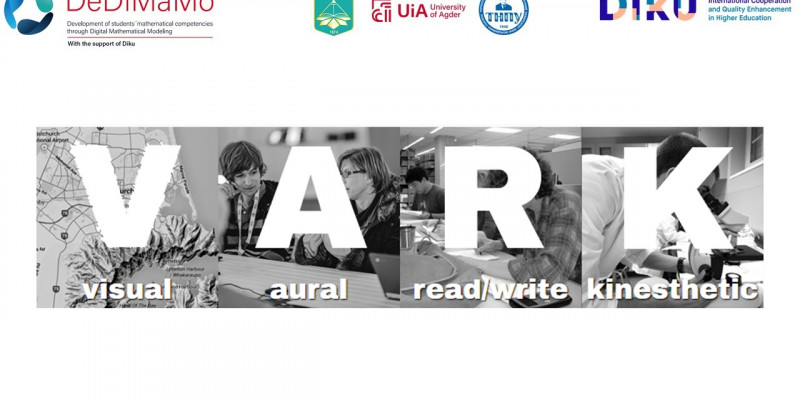As part of the implementation of the international scientific project “Development of students’ mathematical competencies through digital mathematical modeling” (DeDiMaMo) of the EURASIA 2019 program, CPEA-ST-2019/10067, the coordinator of which is the University of Agder (Norway), with the support of the Norwegian Agency for International Cooperation and Quality Improvement of higher education (DIKU), VARK profiles were purchased. Student profiles provide the possibility of questionnaires according to the VARK method, processing the data obtained after the questionnaires and providing useful advice to each respondent regarding learning preferences, adjusted according to the results.
The American psychologist Howard Gardner’s theory of “multiple intelligence” is devoted to the study of personality and cognitive learning styles, which describes and explored the features and best ways of teaching people with different types of intelligence. According to the theory of “multiple intelligences”, each student has his own personal type of intelligence, and accordingly, his own ways of understanding and learning the material. Thus, it is a mistake to explain “everyone is the same”, focusing on only one type of intelligence, while H. Gardner singles out nine types of understanding: linguistic, logical, spatial, kinesthetic, musical, interpersonal, personal, naturalistic, and existential. One of the tasks of the DeDiMaMo project is to provide equal opportunities in the study of mathematics to students with different cognitive styles of information perception. Research data make it possible to determine the “cognitive styles” of students for the creation of an algorithm, development and further implementation of a chatbot as an element of adaptive teaching of mathematics, which will take into account the individual characteristics of students.

leave A Comment